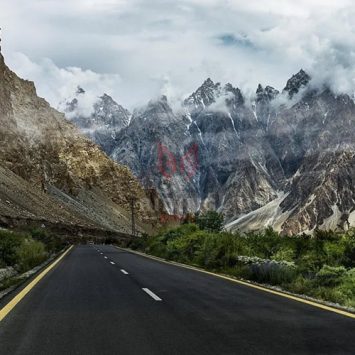The memory of travelling lasts, but some journeys change your opinions about life. The story of my Khunjerab pass tour started from the office of our very own welfare organization. Most of us were about to enter a phase, like completing our educational degrees or getting married sooner.
Before life changed its spectrum, we wanted a real holiday experience. We decided to go to the Khunjerab Pass border on motorbikes. We were six friends, and each had common challenges, like getting permission from home, arranging bikes, and managing budgets. Despite challenges, we did it and started our journey to explore the culture of Pakistan’s northern side.
Khunjerab Pass Tour Starts
For the first time, I had gone so far from home. Those cities were different; I sensed a change in the environment. Seeing the Pakistan Military Academy (PMA) was an influential moment. I thought our day one journey had been completed, but my friends had other plans. They were planning to make their first stop at some farther place.
The funniest thing about this trip was that from the very first day rules were broken that we made to continue our journey. For example, no travelling during the night. I can never forget that night when we reached Balakot, it was a thundering night, the droplets of rain on my helmet were causing a hitting sound. Riding a bike in that rain was challenging, but stopping was more dangerous because there was dense forest down the hill. I was the first among my clan to find a proper place when the road ended, ensuring everyone was safe.
After that, we revised our strategy to continue our journey and defined locations to reach by a specific time. Next, we stayed in Chillas for a night and then reached Hunza. I found peace in that place. Its historical stories captivated me. The people were loving and kind. I remember we ate mambo and chap choro, the specialities of Hunza.
We planned to visit Attabad Lake and the Khunjerab Pass Border the next day. It was also a thrilling and challenging experience for me. When we returned to Hunza, the wind howls were as fast as these, making our bike uncontrollable. But we still managed to reach safely.
The journey was not easy. Sometimes I felt like I made a mistake, not because of fear of challenges, but because of improper planning. But that tour taught me many things, like controlling my temperament. Life changed completely after that journey. I started seeing life from different perspectives. That would not be wrong if I said I found my identity after that journey. The change happened because I felt like an achiever who courageously fought against the obstacles, who did not hesitate to be the first to take the hardest step. I enjoyed meeting people of different cultures and had a strong connection with nature.
The sounds of streams are still with me that I had heard after the sunset on my journey. I can never forget the endless view of clouds and mountains. The nights were soothing, and mornings were without worries. I still remember some poetic verses I wrote while seeing the beauty of the moon behind mountains:
اے صنم تجھ سے اب دل بھر گیا
میں نے پہاڑوں کے پیچھے چاند چھپا دیکھا ہے
Translation:
I have no longer interest in you, oh my beloved
I have seen the beauty of the hidden moon behind the mountains
Counting on those experiences allows me to realize the long-lasting impacts of that journey on my personality. The messed-up life in that journey taught me the value of discipline and personal hygiene. Similarly, the lack of resources and improper planning taught me the value of effective management.
Life changed after coming back home. I started writing furiously, and understood how life differs at different places. Life was also not the same for my boys; maybe it is the reason the same trip did not happen again. Now living busier lives with the memories of mountains.








